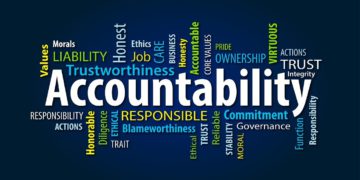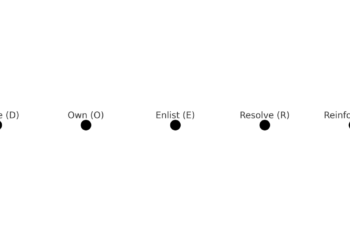Words: Saima Omar
If you’re a CEO, there’s no doubt you have worked very hard to get where you are. You’ve no doubt picked up lots of habits and ways of working that have helped develop you into the leader you are.
But the habits that got you where you are may not get you where you want to go.
So, how do you develop professionally? What’s the best way to become an even better leader? How do you do what is best for your company and your employees to increase contentment and improve results?
The key is to invest time in self-development. This isn’t easy. If done correctly, it’s a raw, honest, and eye-opening process that will draw out the areas where you need improvement with striking detail.
True self-development is not for the faint hearted, but it makes a massive difference. A happy and capable leader is a wonderful asset to a company. Companies who invest in their leaders report sales 114% higher than those who don’t, as well as 70% lower turnover.
Get into the habit
If you’re looking to develop yourself as a leader, one of the best ways of doing this is to adopt a series of habits that constantly push you towards your goals, both professionally and personally.
You might not be used to doing this, so it might take you some time to turn these new behaviors into habits. But keep going. Research suggests it takes 90 days to form a new habit. Three months from now, you’ll be using these techniques without thinking too much about it. This means you’ll be constantly investing in your self-development during every single workday.
Habits for CEO self-development
Habits that will help a CEO with self-development do not have to look at what time they wake up, how many hours they put in the office, or what they eat. There are ways for self-development that do not dictate a lifestyle change in that sense. Some methods for general self-development can include:
- Reading books: Most successful CEOs has a habit of reading books. And there’s no precise genre-preference when it comes to CEOs either. They read widely from business, autobiographies, self-development, to fiction.
- Are inquisitive: CEOs often have a expected inclination to asking questions. Some people are worried about asking questions because they are afraid of disrupting the status quo, but for self-development, asking the right questions is a good habit.
- They like to stay informed: CEO’s who get into the habit of staying informed in the industry vertical that they are in will find that it pays dividends. It allows them to evaluate opportunities and better prepare companies if challenging times are to come.
- Get into the habit of motivating others: Great CEOs know that motivation can drive positive action in their teams. They practice the habit of motivating their employees to do better, and to get out of their comfort zone.
Above, we have looked at some great habits to try and practice and become more mindful of.
Below we look at some more vital habits in more detail which you can adopt for CEO self-development.
Balance your work and personal life
You might think working every hour you can is the best way to get results, but that just isn’t true. To perform to the best of your ability at work, you must have a good balance between your work and personal life.
Statistics show that people with a good work-life balance work 21% harder.
You should be protective of your free time and set yourself strict and clear working times. There are always urgent situations, but most of the time, the balance between your work and homelife should be consistent, proportionate, and fair.
Ask for feedback
If you want to develop as a leader, you need to ask not only your superiors for feedback, but the people you lead.
As a leader it is highly unlikely your employees are going to come to you and offer constructive criticism unless you ask for it. Even then, your team may not feel comfortable speaking their minds unless you make it clear that you want the feedback, are willing to accept it, and there will be no repercussions.
One-to-ones are a good way to do this. Over time, you can build up an open and honest dialogue with your employees who can give you valuable constructive feedback on your performance as a leader.
But it’s not enough to have these dialogues. Employees must see that you are receptive and proactive about receiving their feedback. Without your visible actions, their feedback will feel like a waste of time for them.
You must prepare yourself to hear some things you do not like. But these are key opportunities for you to work strategically and logically to improve in your identified weak spots.
Commit yourself completely to self-development
Self-development is not something you can dip in and out of. You must commit yourself completely to it. You must resolve to be committed to developing as a leader through critical thinking and inviting and accepting feedback from your peers.
You must commit your head, heart, and body completely to developing.
You must view all experiences as an opportunity to become a better, more effective, more organized, and more efficient leader. Your successes and failings should become an opportunity to learn.
You should critically analyze your performance and behaviors with regards to every project you undertake, big or small, to learn how you can improve going forward.
The good news is that when you do this, you won’t only see improvements in your professional life, but in your personal life, too.
Find external peers to support your growth
If you’re serious about developing as an executive, you should look to find like-minded peers to learn and grow with.
They’re going through what you are going through and have likely learned lessons on the way.
Dr John Behr, executive coach with 25 years of experience says: “Senior leaders often benefit from talking to executives outside of their own company. Whether a new CFO is adjusting to C-suite politics, a CTO faces peer push-back on plans to expand into another country, or a CEO has undergone a shift in mindset not shared by the executive team, finding an unrelated third party to talk to can be extremely helpful.
Discussing issues with other senior executives offers a kind of support and perspective that coaches, mentors, or colleagues can’t typically provide. And talking with someone outside of their company — and industry — allows leaders to run ideas and questions by peers who might have a different take on things.
C-suite leaders especially might lack peers whom they can talk to speculatively without having their ideas treated as proposed courses of action. It’s been observed that, with each successive promotion in a company, individuals find the number of co-workers who will speak candidly to them has shrunk. Becoming part of the C-suite magnifies that separation, and for CEOs, it can feel like nearly total isolation. This is part of the reason why I have founded a platform called LeaderBridge for leaders to find external peers that they might match with.”
The LeaderBridge platform links leaders to ask questions, share answers, broaden perspectives, and uncover unique solutions.
You can post your questions and responses anonymously. There is no headhunting or sales involved. All members are required to confirm their professional identity, so you’ll know you are joining a platform full of knowledgeable individuals.
To get started, download the LeaderBridge app from the iOs App Store or Google Play.








































